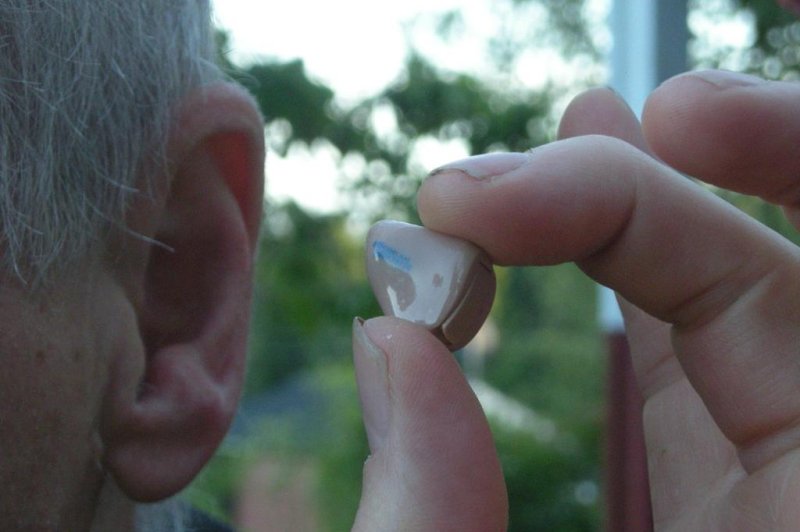Only about 12 percent of elders gets hearing aids after receiving a diagnosis of hearing loss. Photo by Jose Bergsten/Wikimedia
Sept. 5 (UPI) -- After getting their first hearing aid, older adults have a lower likelihood of anxiety, depression and dementia compared to those who don't, a new study says.
However, only about 12 percent of elders gets hearing aids after receiving a diagnosis of hearing loss, according to research published Thursday in the Journal of the American Geriatrics Society.
"We already know that people with hearing loss have more adverse health events, and more co-existing conditions, but this study allows us to see the effects of an intervention and look for associations between hearing aids and health outcomes," Elham Mahmoudi, a researcher at the University of Michigan and study lead author, said in a news release. "Though hearing aids can't be said to prevent these conditions, a delay in the onset of dementia, depression and anxiety, and the risk of serious falls, could be significant both for the patient and for the costs to the Medicare system."
The work to explore the connection between hearing loss and cognitive decline included analysis of Medicare HMO data from between 2008 and 2016 for nearly 115,000 people over age 66 who've suffered hearing loss. These HMOs cover part of the cost of hearing aids, unlike traditional Medicare.
The researchers looked at hearing loss for each participant one year prior to their diagnosis, then three years after it was discovered. They did this to pinpoint only newly detected anxiety, dementia, depression and fall injury cases among the participants.
Within three years of being diagnosed with hearing loss, older adults with hearing aids have an 18 percent lower risk of developing dementia, 11 percent lower risk of depression or anxiety and a 13 percent lower risk of falling-related injuries.
People who experience hearing loss interact with others less and can lose independence, which in turn provides less brain stimulation. This cuts nerve impulses from the ear to the brain, contributing to a loss of cognitive ability. That may ultimately contribute to dementia.
The researchers say other studies also confirm the link between hearing loss and higher dementia rates.
In 2020, new over-the-counter, FDA-approved hearing aids will hit the market for those with low to moderate hearing loss. The researchers suggest Medicare could cover the costs of these devices.
"Correcting hearing loss is an intervention that has evidence behind it, and we hope our research will help clinicians and people with hearing loss understand the potential association between getting a hearing aid and other aspects of their health," Mahmoudi said.















